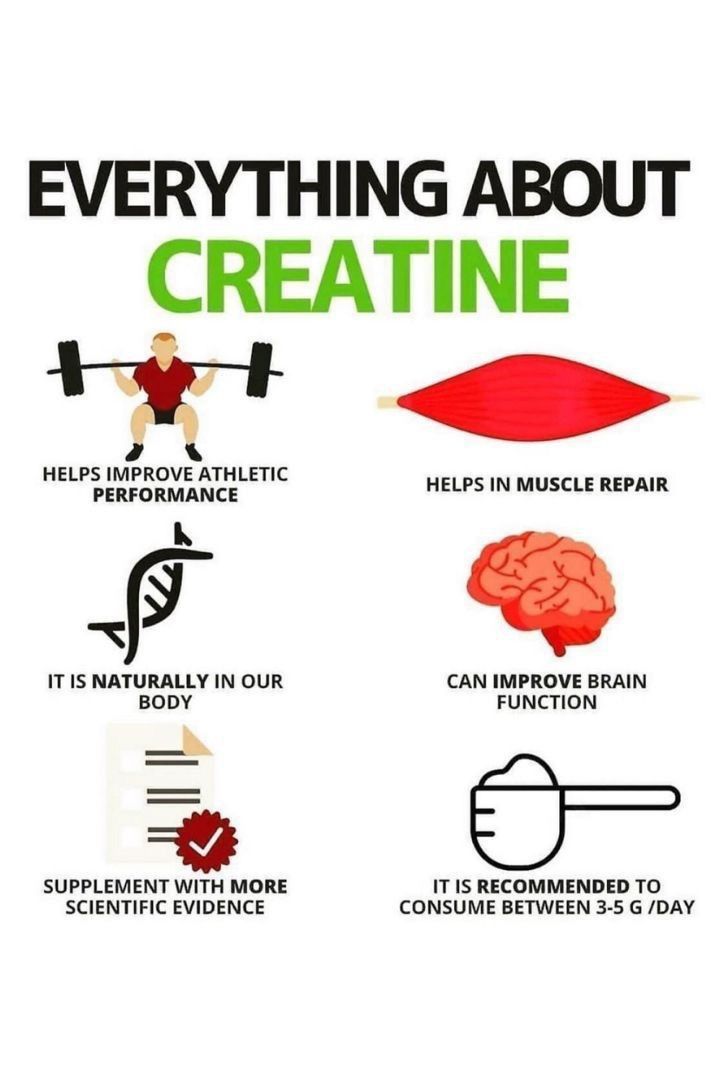Should You Take Creatine? Weighing The Pros And Cons

Table of Contents
The Pros of Creatine Supplementation
Creatine offers a compelling array of potential benefits for athletes and fitness enthusiasts. Let's explore the key advantages of incorporating creatine into your routine.
Increased Strength and Power
Creatine's primary benefit lies in its ability to boost strength and power output. How does it work? Creatine increases phosphocreatine stores in your muscles. Phosphocreatine is a crucial energy source for high-intensity activities, allowing you to perform more reps, lift heavier weights, and experience faster sprints.
- Significant gains in strength and power: Studies consistently demonstrate significant improvements in strength and power, particularly in short-duration, high-intensity exercises.
- Ideal for various activities: Creatine supplementation is beneficial for a wide range of activities including weightlifting, sprinting, plyometrics, and other explosive movements.
- Improved 1-rep max and powerlifting performance: Research shows notable improvements in 1-rep max lifts and overall powerlifting performance with creatine supplementation.
- Enhanced athletic performance: Creatine can help athletes achieve peak performance by maximizing their power output.
Enhanced Muscle Growth
Beyond strength gains, creatine plays a significant role in muscle growth. It works in several ways:
- Muscle protein synthesis: Creatine promotes muscle protein synthesis, the process responsible for building new muscle tissue.
- Increased muscle cell hydration: Creatine draws water into muscle cells, leading to increased cell volume and a fuller, more defined appearance. This effect is often referred to as "cell volumization."
- Improved muscle recovery: Creatine can assist in muscle recovery after intense workouts, reducing muscle soreness and allowing for quicker recovery between training sessions.
- Synergy with resistance training: Creatine's effects are maximized when combined with a consistent resistance training program. The combination leads to significantly enhanced muscle hypertrophy (muscle growth).
Improved Cognitive Function
While primarily known for its physical benefits, some studies suggest creatine may also enhance cognitive function.
- Potential improvements in memory and reasoning: Research indicates that creatine may improve memory, learning ability, and overall cognitive performance.
- Benefits for neurological conditions: Some studies suggest potential benefits for individuals with certain neurological conditions, though more research is needed in this area.
- Ongoing research: The cognitive effects of creatine are still being investigated, and more research is required to fully understand its impact on brain function. However, the early findings are promising.
Increased Physical Performance
Creatine's benefits extend to overall physical performance, making it a valuable supplement for athletes across various disciplines.
- Enhanced performance in high-intensity activities: Creatine significantly improves performance in activities demanding short bursts of intense energy.
- Improved endurance and reduced fatigue: By increasing energy availability, creatine can help athletes maintain higher intensity levels and reduce feelings of fatigue during high-intensity exercise.
- Faster recovery times: Creatine can contribute to faster recovery times between sets and workouts, allowing for more intense training sessions.
The Cons of Creatine Supplementation
While creatine offers many benefits, it's crucial to be aware of the potential drawbacks.
Potential Side Effects
Most individuals tolerate creatine well, but some may experience mild side effects, particularly during the initial loading phase:
- Gastrointestinal issues: Some users report mild gastrointestinal issues such as bloating, nausea, or diarrhea. These effects usually subside as the body adjusts to creatine supplementation.
- Weight gain: Water retention is a common side effect, leading to temporary weight gain. This is due to creatine's ability to increase water uptake in muscle cells.
- Kidney issues: Serious kidney problems are rare and usually linked to pre-existing conditions or excessively high doses. Individuals with kidney concerns should consult their doctor before using creatine.
- Muscle cramps: Some individuals may experience increased muscle cramps. Staying well-hydrated can help mitigate this.
Individual Responses Vary
It's important to understand that creatine's effectiveness varies from person to person.
- Genetic factors: Individual genetic makeup plays a significant role in determining how effectively your body utilizes creatine.
- Varied response to supplementation: Some individuals may experience significant benefits, while others may see minimal or no effects.
Cost and Long-Term Effects
While creatine is relatively inexpensive compared to other supplements, the ongoing cost of supplementation should be considered.
- Ongoing expense: Continuous supplementation represents a recurring cost.
- Long-term studies: Long-term studies are still underway to fully understand the long-term effects of creatine, but currently available evidence suggests it is generally safe.
Conclusion
Creatine supplementation offers numerous potential benefits, including increased strength, muscle growth, and improved athletic performance. However, potential side effects like gastrointestinal issues and water retention should be considered. Whether or not you should take creatine depends on your individual goals, health status, and tolerance. Consult with a healthcare professional or registered dietitian before starting any new supplement regimen, including creatine. Remember to prioritize a balanced diet and consistent exercise alongside any supplementation strategy. Make an informed decision about whether or not creatine is right for you by carefully weighing the pros and cons.

Featured Posts
-
 Where To Invest Mapping The Countrys Hottest Business Locations
May 15, 2025
Where To Invest Mapping The Countrys Hottest Business Locations
May 15, 2025 -
 Bruins Onder Druk Gesprek Met Npo Toezichthouder Over Leeflang Essentieel
May 15, 2025
Bruins Onder Druk Gesprek Met Npo Toezichthouder Over Leeflang Essentieel
May 15, 2025 -
 How To Stream San Diego Padres Games Without Cable Tv In 2025
May 15, 2025
How To Stream San Diego Padres Games Without Cable Tv In 2025
May 15, 2025 -
 Trump Vs Canadian Imports Fact Checking The Us Dependence Debate
May 15, 2025
Trump Vs Canadian Imports Fact Checking The Us Dependence Debate
May 15, 2025 -
 Butlers Big Game Golden State Warriors Defeat Houston Rockets
May 15, 2025
Butlers Big Game Golden State Warriors Defeat Houston Rockets
May 15, 2025
Latest Posts
-
 Co Parenting Success Ayesha Howard And Anthony Edwards Joint Living Situation
May 15, 2025
Co Parenting Success Ayesha Howard And Anthony Edwards Joint Living Situation
May 15, 2025 -
 Election 2024 Comparing Albanese And Duttons Policy Platforms
May 15, 2025
Election 2024 Comparing Albanese And Duttons Policy Platforms
May 15, 2025 -
 Albanese And Dutton Face Off Dissecting Their Campaign Strategies
May 15, 2025
Albanese And Dutton Face Off Dissecting Their Campaign Strategies
May 15, 2025 -
 Ayesha Howard And Anthony Edwards Shared Custody Agreement A New Chapter
May 15, 2025
Ayesha Howard And Anthony Edwards Shared Custody Agreement A New Chapter
May 15, 2025 -
 Albanese Vs Dutton A Critical Analysis Of Their Key Policy Pitches
May 15, 2025
Albanese Vs Dutton A Critical Analysis Of Their Key Policy Pitches
May 15, 2025
